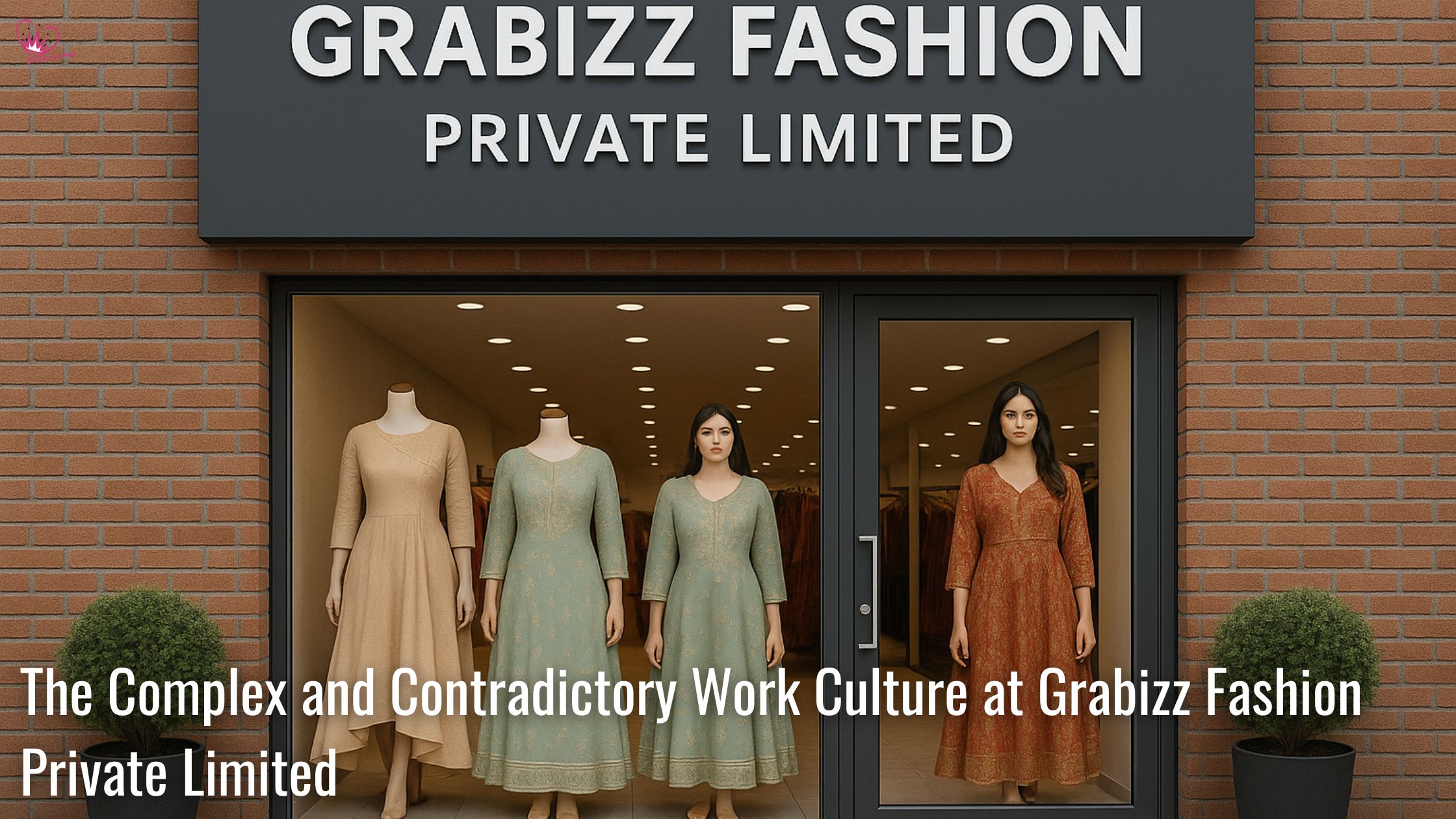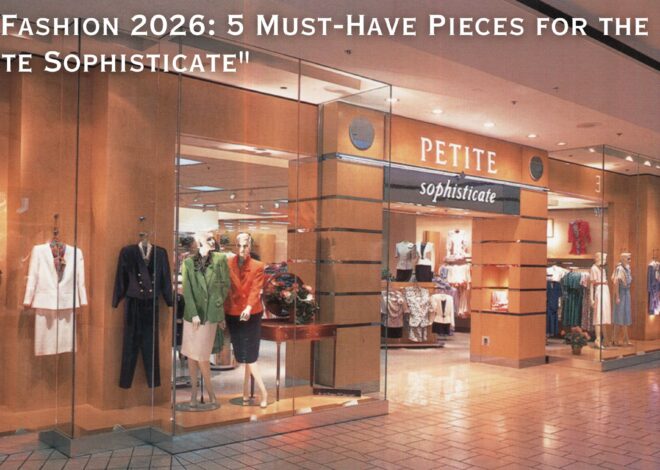
The Complex and Contradictory Work Culture at Grabizz Fashion Private Limited
The work culture of institutions such as Grabizz Fashion Private Limited and its associated entity, Grabiz Fashion (OPC) Private Limited, presents a complex and, at times, contradictory picture based on the publicly available information. It seems that the company works with a strong focus on sales, marketing and e-commerce business models that depend a lot on the network-based approach. While some external professional reviews are highly positive, detailed descriptions from individuals who have experienced the work environment indicate a divisive and potentially problematic environment, particularly in its focus on multi-level marketing (MLM) or pyramid planning structures.
To provide a comprehensive observation, the work culture can be analyzed through several major lenses: the impact of the business model, the reported employee experience, recruitment and training focus, and the general professional environment.
The Core Business Model and Its Cultural Impact
The foundation of the work culture of Grabbed Fashion is unwavering in its operating model, which is repeatedly described as multi-level marketing (MLM) or a pyramid scheme in public forums. This structure, whether it is clearly labeled by the company or not, fundamentally funds the day-to-day experience and its workforce behavioral expectations.
A. High-Pressure Sales and Recruitment Focus
The most prominent aspect of culture is an intensive focus on sales and, significantly, recruitment of new members (or “collaborative”). Employees account often expand a model where:
- Financial obstruction for admission: New recruits are pressurized to pay a significant registration allegedly or to join the fee (₹ 45,000 to be part of the network in an account). This instant financial investment creates an underlying pressure to succeed or, at least, re -receives the initial cost.
- Encouragement for network development: The primary method for “earning” is reportedly not only selling the company’s fashion products, but also recruiting others to join the scheme. New recruits are reportedly told that they will receive an adequate commission for every person they bring into the network. This mechanic directly translates into a work culture that is always aggressive, aggressively dominating the aggressive recruitment drive.
- The “Dream-Building” and Motivational Environment: To maintain this model, “Dream-Building” and inspiring environments, culture is highly dependent on high-energy, inspiring meetings and training sessions. These incidents work to create an atmosphere of aspirational success, where new recruits are shown “fake examples” of high earnings, such as buying cars and earning a six-digit salary, motivating them to join and continue recruitment. This motivational mask is a cultural device designed to maintain engagement despite a potentially low actual product sales or legitimate employment income.
B. Contradictions in Corporate Image
While internal operations are often described as high-pressure MLM, the company tries to project a valid corporate image:
- Job Posting: Official job listings often present roles in e-commerce, sales, marketing, fashion counseling, back-office staff, and data entry. These posts outline specific corporate structures with the prescribed working hours (eg, 9:30 am to 5:00 pm or 8:30 pm to 4:00 pm), and define the salary range. It is rapidly opposite to the independent, commission-powered nature of an MLM.
- Said Mission: A public job advertisement shows a mission “To provide opportunities to individuals to develop and develop their personality while working with our brands.” It aligns with the story’s personal development in direct sales, although there is a huge debate on practical applications.
The Reported Employee Experience: A Tale of Two Cultures
Reviews and comments of individuals associated with Grabiz fashion reveal a deep, polarized, and incompatible experience, depicting an important cultural division.
A. Negative Experience: Basis of Criticism
The most detailed and general reports about work culture are highly negative, accusing the company of “fraud,” “fake company,” and a system that “only robs people’s money.” These accounts portray a picture of a toxic and exploitative environment:
- Exploitation of vulnerability: The “main goal” for recruitment suggests a hunter work culture that takes advantage of financial difficulty and lack of employment experience.
- A feeling of betrayal and loss: individuals express the feeling of “deception” to individuals and paying the nature due the business model and the nature of the business model. This feeling of betrayal is a central feature of negative cultural experience.
- Aggressive persuasion: The work environment needs employees to engage in an aggressive persuasion strategy to recruit their own network, often targeting friends and relatives. This high-pressure requirement can cause significant personal stress and social relationships, leading to mentally taxed and morally compromised efforts.
- Lack of real work: A review suggests that after paying the fee, the promised “training” quickly focuses on recruitment rather than valid fashion, e-commerce, or back-office tasks, which asserts that advertised jobs are only a front.
B. Positive Experiences: The External Perception
Conversely, consumers and some third-party professional listings offer positive assessments of the company, although these products focus on the side:
- Products and Services Focus: Reviews on commercial platforms such as JustDial admire aspects such as high ratings (eg, 4.4 stars out of 5) and “good quality clothes” and “beautiful stores”. These positive comments usually focus on customer experience with products (clothes and accessories) and are different from employee experience.
- Curly praise: Some employee-style praise is unclear; it is called “one of the best companies”, but beyond general inspiring statements, there is a detailed decrease in the actual day-to-day work, compensation structure, or progress of career.
- Cultural Conflict: This dichotomy highlights the necessary conflict in the work culture: an aggressively positive, aspirational, and high-energy environment that is still participating in the recruitment cycle, which is rapidly associated with the culture of financial loss, high-pressure, and moral discomfort for those who feel the investigation by the main business model.
III. Organizational Structure and Working Conditions
Job posting provides real working conditions and some insight into the expected employee profile, mainly at the entry level, and target non-specific roles.
A. Focus on low-career entry
It seems that the company has laid a very wide trap for recruitment, which indicates a low obstruction work culture:
- Minimum skill requirements: Advertised roles like “Fashion Advisor” or “Back Office Staff” often clearly explain that “no predetermined skill is necessary,” “fresher” status, and sometimes “below tenth pass” or “tenth pass” require minimal educational requirements.
- Training in the form of on-ramps: Culture “training” (sometimes called a compulsory 5-day program) emphasizes what is necessary because the work does not require the skills already existing. However, this training is stated to be a primary place for recruitment pressure and payment of fees.
B. Compensation and Benefits
Specific details on traditional employee benefits (eg, insurance, provident fund, or payment time closed) are rare or nonexistent in public information. Primary cultural attention to compensation is on high income capacity – a common motivational strategy in MLM.
- Salary Promise: Job Post promises a wide salary limit (eg, ₹ 14,000 to ₹ 40,000 or ₹ 17,000 to ₹ 23,000), but the actual mechanism of achieving a high end of salary is unclear. In an MLM environment, this compensation is generally commission-based and is dependent on the success of recruitment, not a certain monthly wage for a salaried role.
- Work hours: advertised hours are usually full-time (eg, 8:30 am to 4:00 pm), suggest a traditional work schedule, which can be implemented for administrative staff, but is probably different for commission-based colleagues who can work unaccoves to sales and recruitment.
Conclusion: Navigating the Cultural Reality
Grabiz Fashion Pvt Ltd’s work culture is characterized by a significant tension between its officially advertised corporate roles (e-commerce, sales, consulting) and the perceived reality of its operations, which is often described as a multi-level marketing scheme.
Major cultural traits include:
- Deep Aspiration: Inspired by high-energy, motivational meetings that promise financial freedom.
- Recruitment-centricity: The primary measure of success and core activity for a large portion of the workforce revolves around paying fees and recruiting new members.
- Low occupational specialization: Focused on mass recruitment with minimal skill or education requirements.
- High-risk environment: A culture that requires significant personal financial investments, which creates inherent risks for the individual.
Prospective individuals should be aware that the work culture is greatly influenced by the dynamics of direct selling/MLM. An employee’s actual experience in GrabBiz fashion is described as highly dependent on their participation and success within this recruitment model, an experience that many former participants describe in terms of fraud and financial loss. Therefore, the internal reality of the work culture – the daily pressure to recruit, the emphasis on motivational promotion, and the financial risk – is the most important factor for anyone considering partnering with a company.

